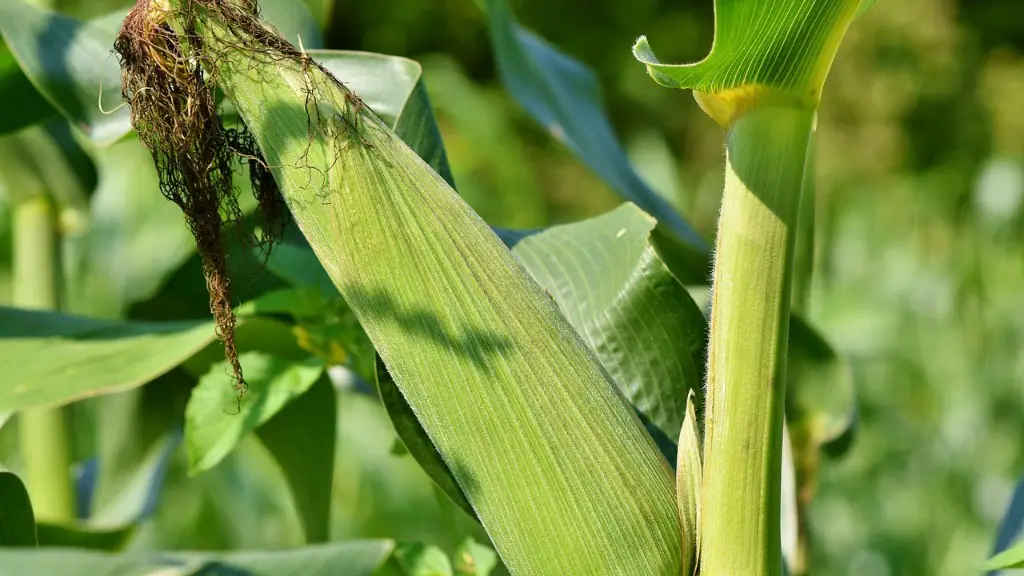Why is Agriculture a Perfect Competition?
Agriculture is an industry that has long been studied in economic and market theory, renowned for its ability to support perfect competition. Perfect competition, generally, can be seen as the ideal model to provide quality products, reasonable prices, and fair treatment to both growers and buyers. To understand why this is, we must examine what goes into creating this type of market.
In a perfect competition, there is an unlimited number of competitors or players who have equal access to the same resources and markets, with none having any advantages over the others. Therefore, all players can sell their products to anyone, at a mutually agreed upon price, without any of them having unfair advantages.
In agriculture specifically, this ability of equal access also implies that farmers can access the same markets regardless of their size. Therefore, regardless of how small or large a farm is, they are able to distribute their products throughout the same market, which protects them from monopolies and unfair practices.
Apart from this, the relative uniformity of farming techniques throughout the industry helps to encourage perfect competition. This means that all players in the industry are essentially equal in terms of knowledge and ability, promoting healthy competition and assisting with product quality.
Finally, the products of an agricultural industry, no matter the size, must meet the basic requirements of consumers in order to be successful. Farmers must grow crops that are of an adequate quality and quantity in order to attract buyers, thus further encouraging perfect competitiont.
Agro-Industrial Markets
Modern agro-industry typically relies heavily on specialized markets that provide the necessary support for farmers and potential buyers to access the same resources and markets. This includes everything from providing the means for farmers to sell their products, providing the necessary education and knowledge, as well as ensuring quality control and regulations.
These markets are essential in ensuring that all players have equal access to the same resources, thus allowing them to compete more effectively on price and quality. Furthermore, the existence of these markets helps to reduce the possibilities of contracts and monopolies, allowing farmers to receive fair wages and assuring buyers that they are receiving quality products.
However, what makes agro-industry so special is its ability to incorporate the advantages of both perfect competition and international markets. This means that while the pricing and other resources within localized agro-industries are relatively uniform, the large global markets still provide the opportunity for farmers to specialize or use unique strategies to ensure that they remain competitive.
By having access to both of these markets, farmers can benefit from the improved products and prices offered by perfect competition. At the same time, the international markets provide avenues for higher profits that can be used to reinvest in their farms, improve their products, and increase their productivity.
Therefore, it can be said that perfect competition in agro-industries can be seen as a win-win situation for everyone involved. Farmers can access the necessary resources and markets, while still maintaining their independence, while consumers can benefit from both the improved quality and fair prices.
Economies of Scale
One of the biggest benefits of perfect competition in agriculture is that it provides a platform for farmers to access economies of scale. Economies of scale, simply put, can be described as the ability to reduce costs and improve efficiency by utilizing larger production units, thereby allowing farmers to produce more products with less resources.
In this type of market, farms are able to specialize and use their resources more efficiently. This means that farmers are able to produce larger volumes of products with smaller costs in labor, resources, and overhead. Furthermore, this has the additional effect of reducing costs for the consumer, by freeing up resources that can be redirected to lower overall expenses.
Additionally, the use of economies of scale also helps to ensure that the products available in the market remain of high quality. This is because the larger volumes of production will be able to take advantage of improved production processes, mechanization, and other types of technology, which in turn improves quality.
Finally, economies of scale allow farmers to focus more on their own operations, instead of wasting resources on overhead and other costs related to managing the industry. This ensures that farms can dedicate more of their resources towards production, thus further improving the quality, quantity, and efficiency of their products.
Price Competition
Price competition is another aspect of perfect competition that helps to improve the overall efficiency of an agricultural market. By having an equal access to the same resources, markets, and prices, farmers can actively compete on the basis of their prices, and buyers can take advantage of the lowest prices available.
For this reason, it is important for buyers to have access to multiple sources and outlets, as this will allow them to compare prices from different farms and determine which one offers the best value for their money. Similarly, farmers can also use this as an opportunity to keep their products competitive and drive up their profits.
Furthermore, while price competition usually has negative implications, in the context of an agricultural market, it can actually be beneficial. This is because it helps to promote efficiency and encourages farmers to focus on producing quality products, as no one will purchase their products if the prices are too high.
Therefore, price competition in perfect competition markets can be seen as beneficial for both sides of the market. Farmers are able to access better prices and buyers can ensure that they are getting the best value for their money.
Environmental Effects
Finally, one of the most important aspects of perfect competition is its ability to provide environmental benefits. Through the use of economies of scale and improved production processes, farms are able to reduce their waste and recycling,which in turn reduces their reliance on natural resources.
At the same time, perfect competition helps to ensure that farmers remain independent and are not taken advantage of by monopolies, which can often result in harmful practices. This means that farmers are able to prioritize the environment, while still remaining profitable.
Therefore, it is clear to see that perfect competition in agriculture can help to improve the industry in more ways than one. By providing equal access to resources and markets, farmers are able to maintain their independence and become more efficient. Meanwhile, buyers can benefit from improved quality products while still receiving fair prices.





